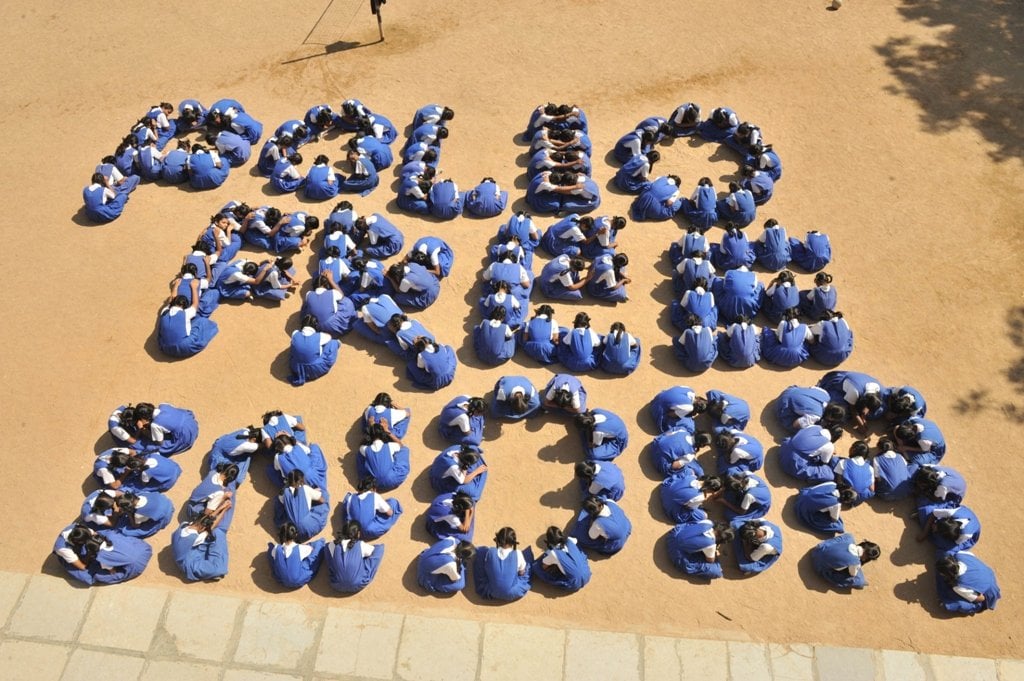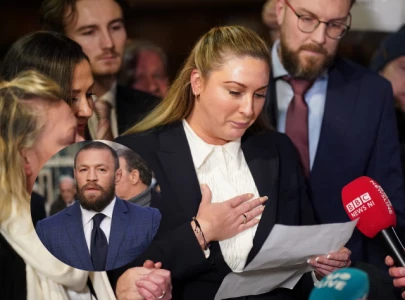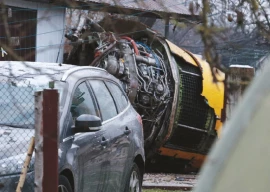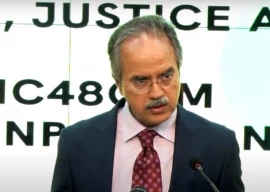
The landmark is seen as confirming one of India's biggest public health success stories, achieving something once thought impossible, thanks to a massive and sustained vaccination programme.
With the number of cases in decline in Nigeria and Afghanistan, two of only three countries where polio is still endemic, world efforts to consign the crippling virus to history are making steady progress.
"In 2012, there were the fewest numbers of cases in endemic countries as ever before. So far in 2013 (records are still being checked), there were even less," Hamid Jafari, global polio expert at the World Health Organisation told AFP.
"If the current trends of progress continue we could very easily see the end of polio in Afghanistan and Nigeria in 2014," added Jafari, hailed as having played a crucial role in India's victory.
Despite the success, isolated polio outbreaks in the Horn of Africa and war-wracked Syria emerged as new causes for concern in 2013.
Countries are certified by the WHO as being polio-free if they go 12 months without a case, and are then said to have eradicated it after a period of three years without new infections.
India will likely receive this endorsement only at the end of February or early March, which will trigger more exuberant celebrations than are likely to be seen on Monday.
There also remain reasons for caution, with the virus still considered endemic in Pakistan, where vaccinators are being killed by militants which view them as possible spies.
Hopes of progress were given a boost last month when Pakistan Tehreek-e-Insaf chairman Imran Khan pledged to personally spearhead vaccination efforts in Khyber-Pakhtunkhwa.
India's success was built on a huge vaccination programme that began in the mid-1990s with the backing of the central government and a coalition of charities, private donors, and UN agencies.
An army of more than two million vaccinators, backed by local religious and community leaders, canvassed villages, slums, train stations and public gatherings in even the most remote parts of the country.
The country reported 150,000 cases of paralytic polio in 1985, and it still accounted for half of all cases globally in 2009, with 741 infections that led to paralysis.
In 2010, the number of victims fell to double figures before the last case on January 13, 2011, when an 18-month-old girl in a Kolkata slum was found to have contracted it.
The girl, Rukshar Khatoon, is now attending school and leads a "normal life", although she still suffers pain in her right leg from the disease, doctors and her parents told AFP.
"She can now stand on her feet and walk, but can't run," her father Abdul Saha said. "When her friends play, she remains a spectator."
Saha, a father of four, conceded he had taken his son to get immunised but not his two daughters. "It was a grave mistake," he said, adding that after Rukshar contracted the disease he made sure his fourth child received the anti-polio drops.
Nicole Deutsch, head of polio operations for UN children's arm UNICEF in India, called three years without polio in India "a monumental milestone".
Jafari highlighted the immense knock-on benefits for public health in India, which is still afflicted by other preventable diseases, widespread malnutrition and poor sanitation.
"India has now set other important public health goals as a result of the confidence that the country has got from the successful eradication of polio," he said, citing a new measles eradication goal.
The wretched sight of crippled street hawkers or beggars on trolleys in India will remain, however, as a legacy of polio during the country's time as an epicentre of the disease.
In the absence of any official data, most experts agree there are several million survivors left with withered legs or twisted spines who face discrimination and often live on the very margins of Indian society.
COMMENTS (18)
Comments are moderated and generally will be posted if they are on-topic and not abusive.
For more information, please see our Comments FAQ

















@masood: And of course you can show that ALL the Pakistani children afflicted by Polio over the last decade have been "cured by prayers"!!! NOT!!!
widening of mindset is important before attempting to do things such as polio eradication. wish Pakistan get enough strength to look beyond their misguiding religious leaders
Good for India. But still needs to be cautious as the air flows from Pakistan side and bring back the disease.
Polio immunization drive is a proxy to carry out anti Pakistan activities.This was evident from the Osama Operations last year. Polio cases are being exaggerated to defame Pakistan, it is a propaganda and also being used as a pretext to take up the so called polio drives. What little cases of polio is there can be cured by prayers. No need for such polio drives.
Please Publish. Thank you
@gp65: Pakistan can, and should try to eradicate Polio. But depending on Imran Khan ? He changes his position every hour on every issue.
With its eradication the polio virus must under no circumstances join the list of other unwelcome exports from Pakistan into India; namely terrorists, heroin and counterfeit Indian currency notes. It is thus imperative for India to stop providing visa’s to Pakistanis to visit India and simultaneously prohibit Indian’s from visiting Pakistan. India should not be swayed by sympathy inducing arguments about the need for maintaining people to people contact, helping divided families and using visit visa’s as confidence building measure to foster peace. India must instead enjoy the fruits of eschewing the temptation of acquiring lots of nuclear “bums” and weapon systems in order to make resources available for polio eradication unlike Pakistan.
India should celebrate this success but should be careful and watchful to see that the disease does not come back again. World has been able to eradicate completely two other deadly diseases, viz. yellow fever and small pox. India also claimed to have eradicated malaria in the 60's. I remember India celebrating it and special postal stamps were issued to mark this achievement. However, malaria resurfaced with vengeance a few years later and it is taking a heavy toll in India every year. Not just malaria but many other diseases like dengue and Chikungunya are so much prevalent now in India. In my times in India, I never heard of Chikungunya and dengue was rare. India should watch carefully and continue to take steps to see that polio does not resurface again.
The unfortunate part in this battle is Pakistan which along with Afghanistan and Nigeria are the only countries where this disease is prevalent. What is more unfortunate for Pakistan is that it is the only country where polio is on an increasing trend whereas, polio infections are declining in the other two countries, viz., Afghanistan and Nigeria. If Pakistan does not take action on war footing, soon Pakistan will become the only country in the world where polio would be present.
@Brokenheart: for that we need rapid economic growth, China increased their GDP frm 1.3 trillion to 5 trillion within a decade during 2000-2010 period. our economy is now destroyed by corrupted, greedy politicians and officials.
Presuming its true - well done India . One can never be sure of statistics. GB Shaw once famously said - Statistics are like swim suits- they show a tantalizing figure but conceal the most important parts.
@Anique: Surprise...Its is news website!! The right question is what are you doing browsing a news website, please go and rote in a madrasa.
What is this article in a Pakistani newspaper?
Well done.
Its time Pakistan realizes the importance of polio eradication and follow the landmark of WHO to eradicate the disease from the surface of the world. The three countries Nigeria, Pakistan and Afghanistan has to take the battle against polio seriously and a young population without the deadly disease is mandatory for all the developing world. Then only the subcontinent can be polio free. If India can do a turn around like 741 cases in 2009 and nil cases after 2011, Pakistan can also do the same. Best of Luck to Pakistan, Afghanistan and Nigeria.